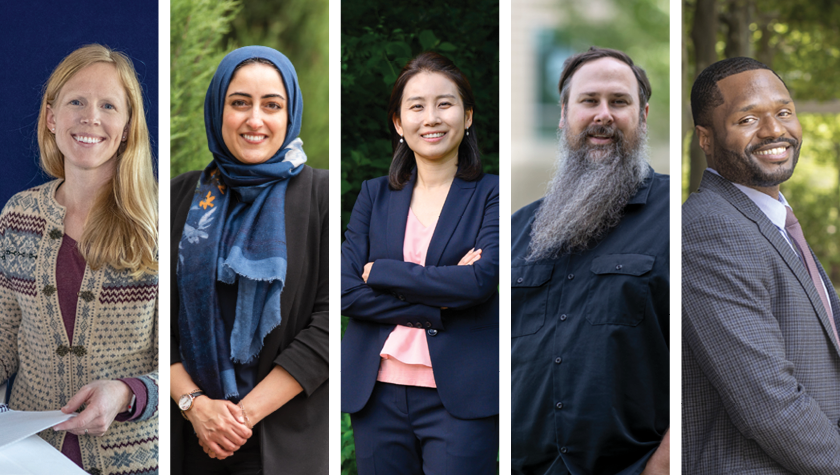
Meet recent School of Pharmacy alumni who are leading their fields forward
By Jessica Steinhoff
Last year, we debuted our Five of the Future feature to highlight some of the tremendous accomplishments by recent alumni from each of our degree programs: Bachelor of Science in Pharmacology and Toxicology (PharmTox), Doctor of Pharmacy (PharmD), Master of Science in Health System Pharmacy Administration, PhD in Health Services Research in Pharmacy (HSRP), and PhD in Pharmaceutical Sciences (PharmSci).
This year, the feature is back and looking at a new batch of impressive alumni who have graduated within the last 15 years and have left an indelible mark on their fields, from getting new diagnostics to patients to improving health care accessibility and transparency. Meet the University of Wisconsin–Madison School of Pharmacy’s 2022 Five of the Future.
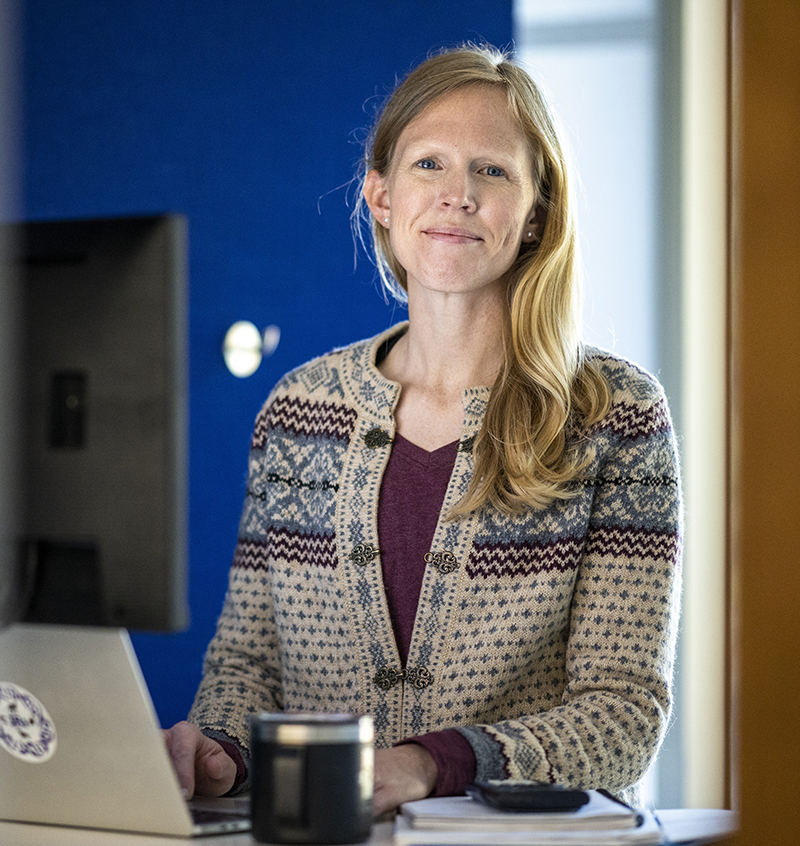
Location: South San Francisco, Calif.
Position/Employer: Senior Scientist/Toxicologist, Genentech
Claim to Fame: Helping maximize the therapeutic window for emerging treatments in the fields of oncology, immunology, and infectious disease.
Proudest moment: Passing the American Board of Toxicology exam in 2021.
Inspiration: “Working with such bright and motivated people who aren’t deterred by the challenges of drug development.”
Anna Engstrom (BS ’11) has sought to understand how drugs work since elementary school, when she was diagnosed with Crohn’s disease.
“I came to appreciate the benefits and risks associated with medical therapy very quickly,” she explains. “Early on, I noticed how prednisone made my gastrointestinal pain go away during a flare, but I hated that it gave me puffy cheeks and toyed with my emotions.”
As she tried other treatments, including 6-mercaptopurine, methotrexate, anti-TNF therapies, and vedolizumab, she gained firsthand knowledge of side effects such as photosensitivity and injection-site reactions. She also discovered how liberating remission can be.
“We share a commitment to doing what’s best for patient outcomes, even if it means spending extra time to get it right or wading into uncharted territory.”
—Anna Engstrom
Along the way, Engstrom took many trips to the local pharmacy with her mother. The pharmacist’s knowledge never ceased to impress her, and it ultimately shaped her career path.
“I loved how our pharmacist knew everything about all the medications I was taking,” she says. “By the end of high school, I’d decided that I wanted to pursue a PharmD so I could be a pharmacist, too.”
Engstrom chose UW–Madison for her undergraduate studies, planning to apply to the School of Pharmacy’s PharmD program after her sophomore year. While she did make her way to the School of Pharmacy, her career goals changed after attending an information session for the School’s Pharmacology and Toxicology bachelor’s degree program, featuring Professor Jeff Johnson and his neurodegeneration research.
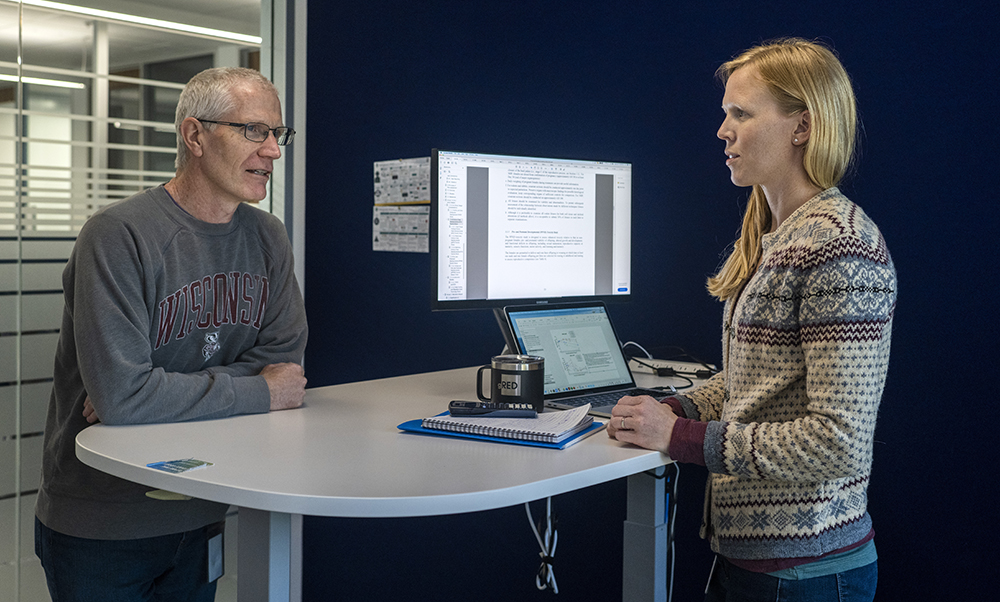
“He had these awesome images of various immunohistochemical staining in the mouse brain,” she recalls. “This session introduced me to the idea of doing research to better understand the mechanisms underlying toxicity, whether it’s from environmental toxicants or medications like the ones I’ve taken to manage my Crohn’s disease.”
Before long, Engstrom entered the PharmTox program, which provided a solid foundation not only in pharmacology and toxicology, but also biochemistry and other scientific disciplines. This preparation helped her thrive in a toxicology graduate program at the University of Washington, where she earned her PhD in 2016. Since graduating, she’s held a series of increasingly senior roles in toxicology at consulting firm ICF and biotechnology companies Achaogen and Vir Biotechnology, and finally where she is today, at Genentech.
“UW–Madison’s PharmTox program had eight to 10 students in my year, which made the experience feel personalized. Associate Professor Arash Bashirullah and Professor Richard Peterson were terrific advisors for my research, and teaching assistants like Kyle Kleinbeck (BS ’07, PhD ’11) would answer questions not only about course content but what you could do with that knowledge after earning your degree,” she says.
Engstrom also savored opportunities to see toxicologists at work in the real world. A PharmTox tour of Covance (now Labcorp Drug Development) helped her glimpse how contract research organizations work, while a travel award from the School helped her attend the Society of Toxicology’s Annual Meeting for the first time. Today, Engstrom is councilor of the society’s NorCal regional chapter, and interacting with contract research organizations is an important part of her work at biotech heavyweight Genentech.
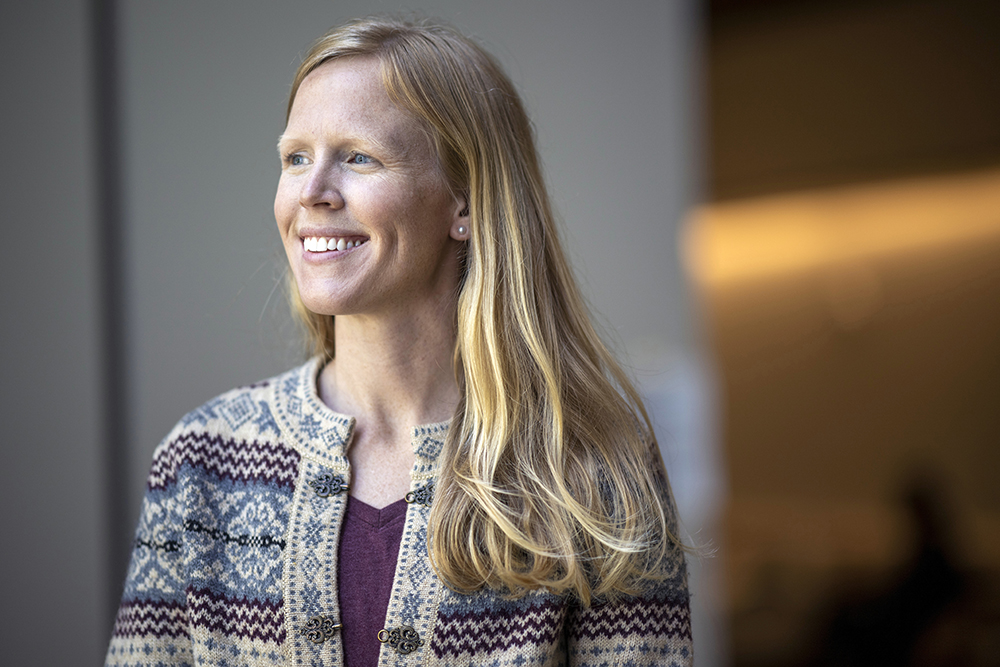
Engstrom serves as a project toxicologist for Genentech’s safety assessment group, a translational role that supports all the nonclinical activities needed to advance a molecule from research through approval. She currently sits on cross-functional project teams in oncology, immunology, and infectious disease, where she collaborates with colleagues who specialize in pharmacokinetics, research biology, early clinical development, and more.
“It’s exciting to work at a place with such depth and breadth of experience and a focus on following the science to create the right medicines for the right patients,” she says.
Engstrom feels fortunate to have landed in translational safety assessment, which plays to her strengths, and she is grateful for the ongoing inspiration her colleagues provide.
“The failure rate in drug development is really high, but my colleagues aren’t so intimidated by that. They help me see this challenge as an opportunity,” she explains. “We share a commitment to doing what’s best for patient outcomes, even if it means spending extra time to get it right or wading into uncharted territory. These are some of the things that keep me coming back for more.”
Back to top
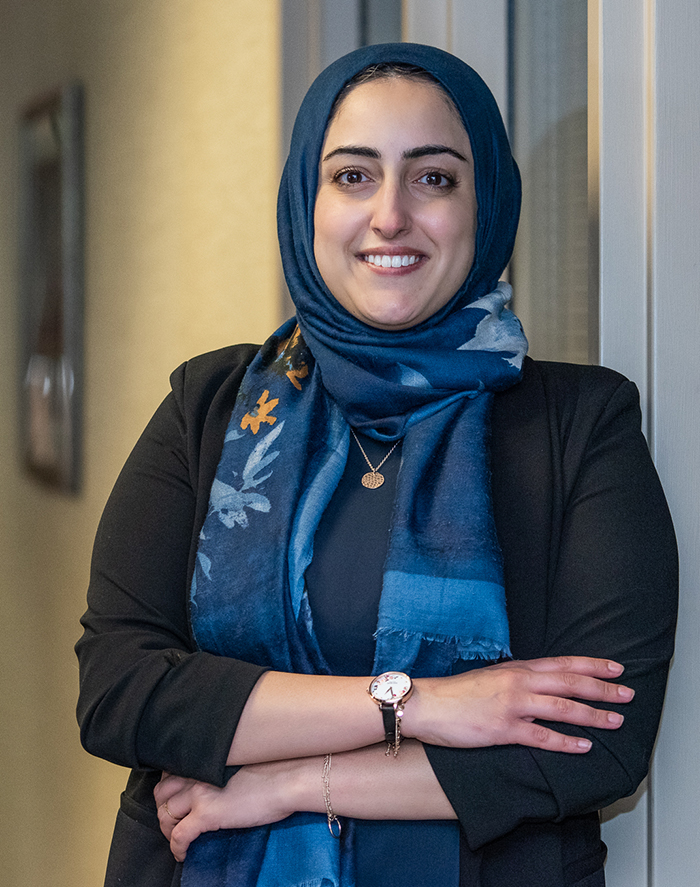
Location: Milwaukee, Wis.
Position/Employer: Vice President of Care Transformation, Advocate Aurora Health
Claim to Fame: Helping Advocate Aurora Health create a centralized prior-authorization process that saves time for both patients and clinic staff.
Proudest moment: Launching Umwella, a platform that aims to make health care more transparent, accessible, and convenient.
Inspiration: “Right now, I’m blessed with an opportunity to help make health care more accessible for underserved populations. I hope that my next step, whatever it is, builds on this mission.”
Dalia Saleh (PharmD ’14) remembers the day her family’s world turned upside down. She was a freshman at UW–Madison, and her younger sibling had just received a sobering diagnosis.
“The oncology pharmacist who visited us in the hospital room walked us through the treatment regimen, giving us a plan, and bringing calm to the storm,” she says. “I saw how broad and diverse the impact of a pharmacist could be.”
That hospital room was square one of Saleh’s pharmacy journey, which continued at the UW–Madison School of Pharmacy and has largely unfolded within Advocate Aurora Health, a not-for-profit health care system headquartered in Milwaukee, Wis., and Downers Grove, Ill.
“The oncology pharmacist who visited us in the hospital room walked us through the treatment regimen, giving us a plan, and bringing calm to the storm. I saw how broad and diverse the impact of a pharmacist could be.”
—Dalia Saleh
In 2016, after completing residencies in inpatient pharmacy and health system pharmacy administration, Saleh became a manager of pharmacy operations with the system, overseeing the growth and operations of up to three dozen retail pharmacies, as well as remote dispensaries and a telepharmacist hub. One of her proudest achievements in this role involved building a new centralized system for handling prior authorizations across Advocate Aurora Health’s ambulatory clinics.
System leadership and frontline staff alike were eager to make the prior-authorization process more efficient. Typically, when a provider prescribes a medication that requires approval from an insurer, staff at the provider’s clinic must complete a host of tasks that pull them away from their primary duties. As these staff file forms, make calls, and advocate for patients, the patients are often left waiting for their medications.
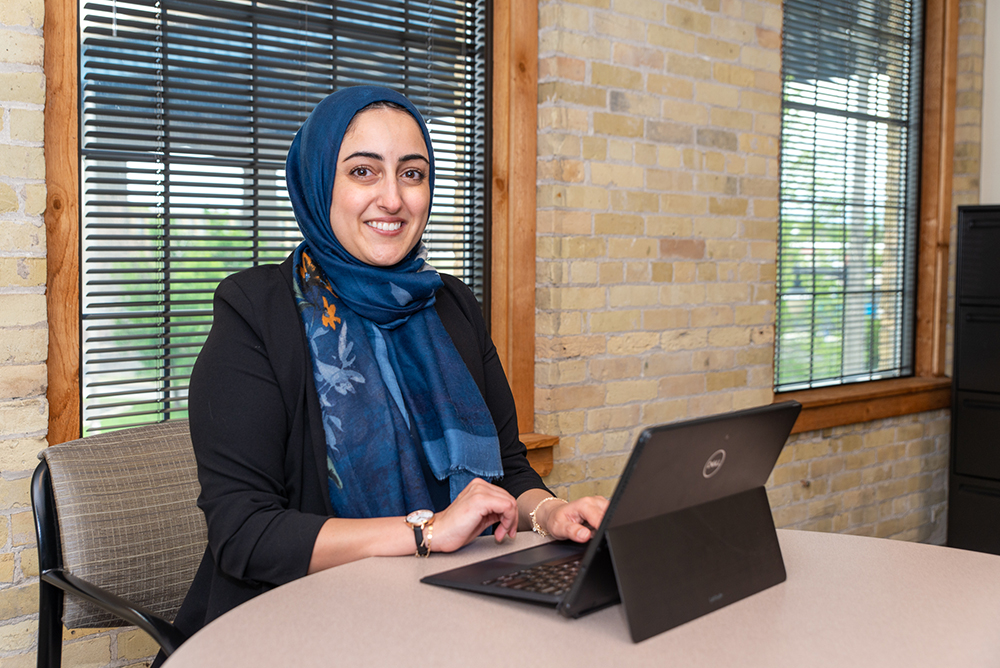
“As a pharmacist, I knew all too well the issues that the traditional prior-authorization process creates. We knew there had to be a better way,” she says.
The solution involved moving from a site-level model to a centralized one with a team dedicated to resolving prior authorizations by leveraging new software integrated into the electronic medical record.
Saleh and the team identified pilot sites for testing the new model, gauged large-scale staffing needs, and embarked on a system-wide rollout.
The transition was arduous, but the benefits of having a centralized team soon became clear.
“We’ve seen notable improvements in prescription turnaround times for patients,” Saleh says. “Plus, our frontline clinical team doesn’t have to spend as much time dealing with insurance companies, which means they can spend more time where they should be spending it: with patients.”
As Advocate Aurora Health implemented this new model, Saleh was promoted into new roles, becoming the system’s manager of specialty pharmacy in December 2018 and the director of specialty, mail order, central fill, and compounding pharmacy in January 2021. In September 2021, she ascended to her current role with the Strategy and Innovation department, as vice president of care transformation, where she leads a team that creates digital-first programs to help patients access health care with ease.
“We’re launching a 24/7 digital birth control initiative,” she says. “Programs like these position us to bring care to those who live in medical deserts or are experiencing other types of health inequities.”
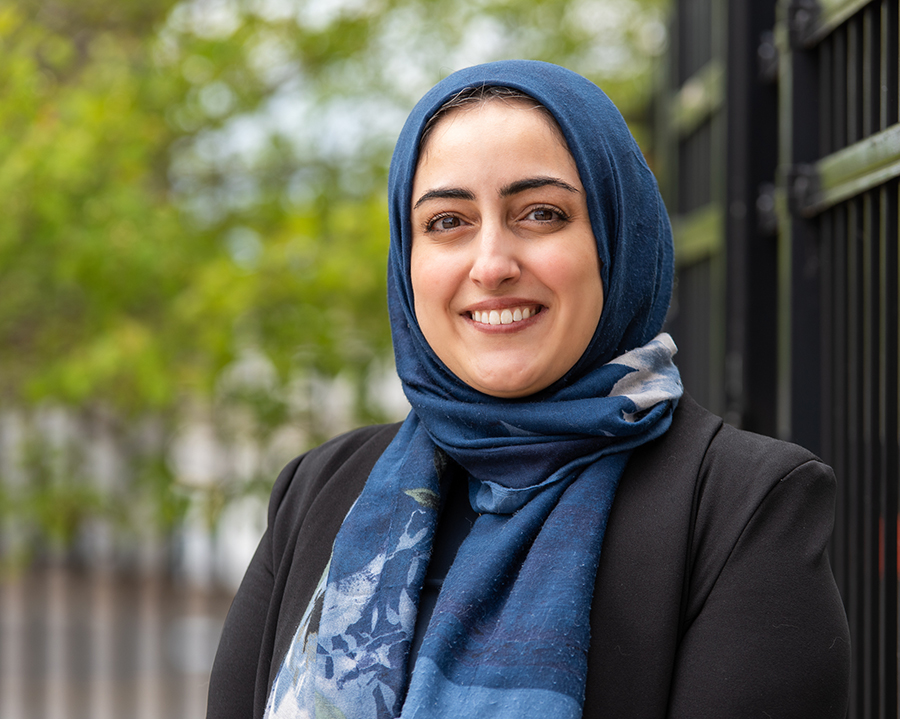
New titles and responsibilities weren’t all that made 2021 a banner year for Saleh. It’s also the year she launched Umwella, a platform that helps patients take control of their health and wellness care, by bringing price transparency to their fingertips. It also simplifies the process of scheduling and paying for these services.
“Health care is the one industry where customers have no idea what they’re going to pay before getting a service, which means they often lose the ability to make fully informed decisions,” she explains. “This never sat right with me.”
Once again, Saleh set out to solve a problem with innovation.
In doing so, she leveraged several skillsets she developed earlier in her career, including technical skills from helming her own web design and hosting business in high school and college, to business acumen from Concordia University’s MBA program, which she is in the process of completing.
Pitching the platform idea for investment was “a lot like Shark Tank,” she says, referencing the ABC reality show where entrepreneurs compete for investors’ support and funding.
“I pitched the idea through several rounds and was very grateful to get support and funding to move forward. This allowed me to hire staff and work with a team of developers to make my vision a reality,” she says. “It has been an incredible journey.”
Back to top
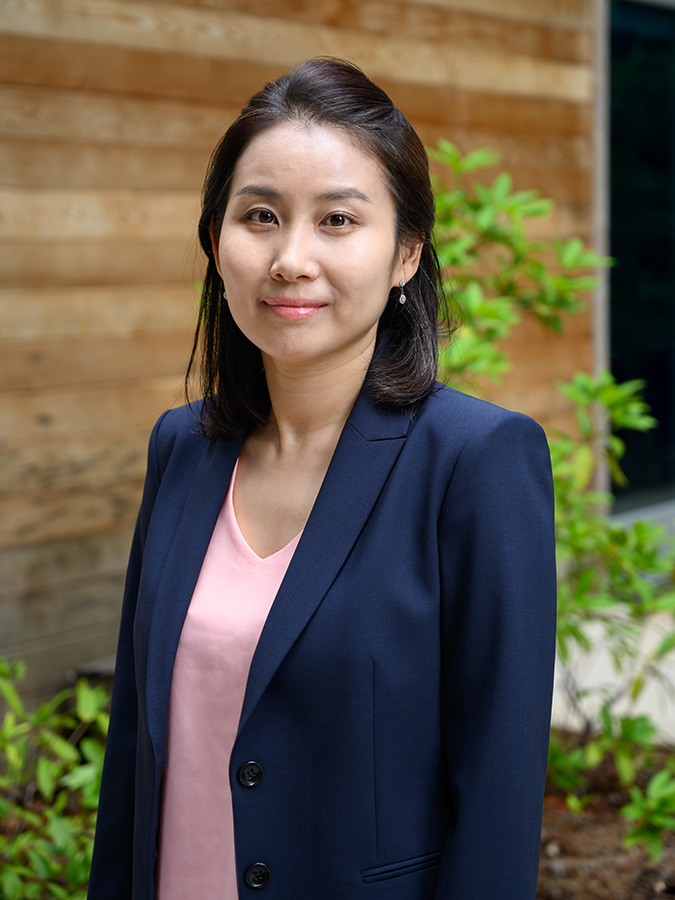
Location: Atlanta, Ga.
Position/Employer: Health Scientist, Division of Global Migration and Quarantine, National Center for Emerging and Zoonotic Infectious Diseases, Centers for Disease Control and Prevention (CDC)
Claim to Fame: Making important discoveries about COVID-19 risk among people with chronic disease and other barriers to wellness.
Proudest moment: Two recent papers being nominated for the Charles C. Shepard Science Award, given to the best manuscript on original research a CDC scientist has published in a peer-reviewed journal.
Inspiration: A passion for reducing health disparities and helping vulnerable groups thrive.
Chronic illness upends lives. People of color, people with limited financial resources, and other vulnerable groups tend to face even harsher consequences than those with fewer social and economic barriers. Joohyun Park (PhD ’19) studies these consequences and their impact on American society, giving decision-makers the information they need to build effective policies.
“I hope that my work helps reduce health disparities and problems with health care access for disproportionately affected populations,” she says. “Policymakers can use findings from my research as supporting evidence when creating programs to help people in need.”
“I hope that my work helps reduce health disparities and problems with health care access for disproportionately affected populations.”
—Joohyun Park
Since graduating from the UW–Madison School of Pharmacy — where she and Associate Professor Kevin Look (PharmD ’09, MS ’11, PhD ’13) made headlines with their research on cancer survivors’ financial stress — Park has worked for the CDC, informing the federal government’s response to diabetes and COVID-19. She began as a postdoctoral fellow in the National Center for Chronic Disease Prevention and Health Promotion, Division of Diabetes Translation, working on economic studies of diabetes, as well as studying COVID-19 risk among people with diabetes, people with substance use disorder, and people experiencing homelessness or incarceration.
Park has authored and co-authored important research about diabetes, including how the condition elevates COVID-19 risk. One of her co-authored studies showed that patients with type 1 diabetes hospitalized for COVID-19 are at significantly higher risk of mortality and other severe outcomes than those without diabetes. Park has also contributed to research estimating the cost-effectiveness of lifestyle interventions designed to prevent the onset of type 2 diabetes, the productivity cost of type 2 diabetes among employees diagnosed with this condition, and the out-of-pocket costs Medicare beneficiaries with diabetes face.
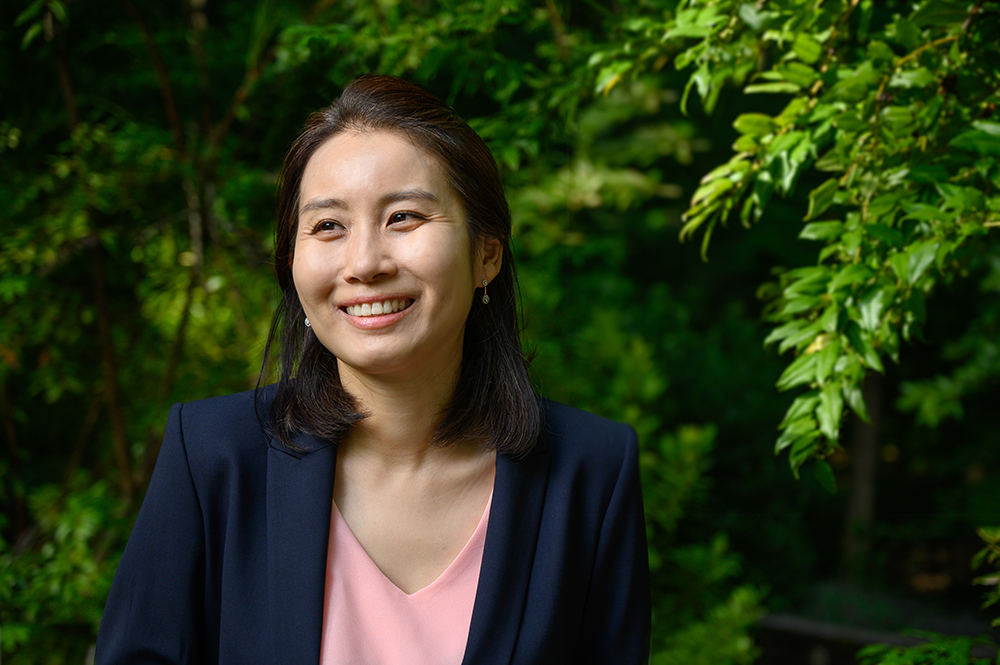
Two of Park’s papers about diabetes patients — “High Out-of-Pocket Health Care Cost Burden Among Medicare Beneficiaries With Diabetes, 1999-2017” and “Intensive Care Unit Admission, Mechanical Ventilation, and Mortality Among Patients With Type 1 Diabetes Hospitalized for COVID-19 in the U.S.” — were nominated for the prestigious Charles C. Shepard Science Award, which recognizes an outstanding manuscript by a scientist from the CDC or the Agency for Toxic Substances and Disease Registry.
“It was such a great honor to be selected for consideration,” Park says. “There are many talented scientists across the many divisions of the CDC, and I was just a fellow. This recognition is great motivation to keep working and looking for answers to important questions about how to better serve vulnerable populations.”
In another recent project, Park and her colleagues identified people with substance use disorder who were hospitalized between April and December of 2020, then identified COVID-19 risk factors within this group. They found that men, racial and ethnic minority groups, and people diagnosed with another serious health condition such as diabetes or chronic hepatitis were more likely to be diagnosed with COVID-19. People with certain types of substance use disorders — especially involving opioids, alcohol, and cocaine or other stimulant — also had a higher likelihood of receiving a COVID-19 diagnosis.
“This research showed that we have a lot to learn to be able to better prevent COVID-19 in these high-risk subgroups of people with substance use disorder, and to better help people from these subgroups who develop COVID-19,” Park says.
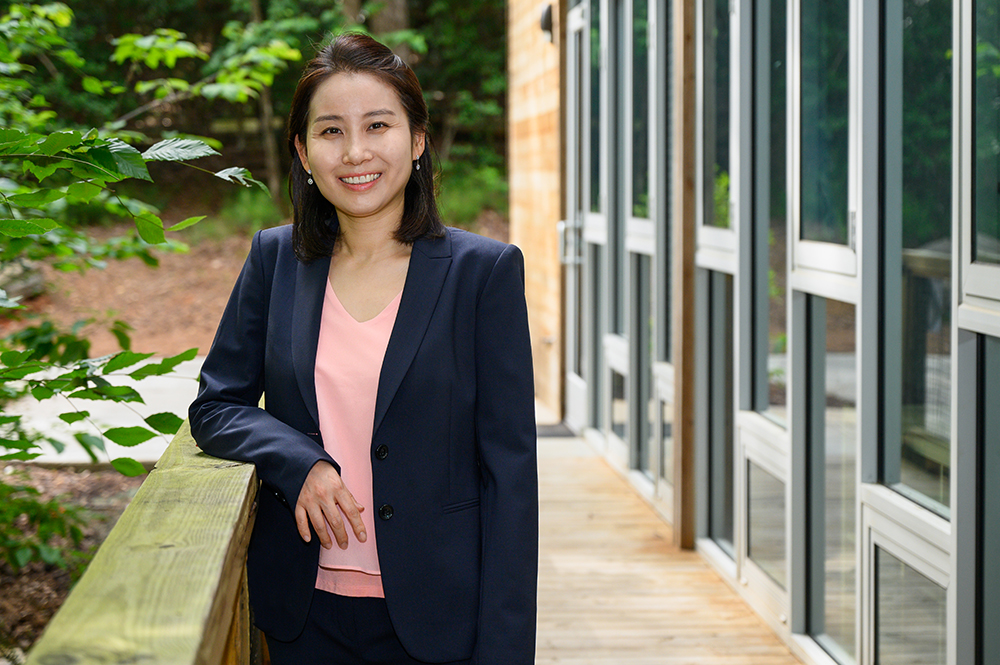
In another study, Park’s team found that people experiencing either homelessness or incarceration tend to stay in the hospital longer than patients from the general population, and that people from these at-risk groups are more likely to be readmitted. This work highlights how crucial it is for institutions serving these groups to follow best practices for COVID-19 prevention, and how expanding medical respite care for these populations might help reduce hospital stays.
Fueled by this achievement, Park transitioned into a health scientist role in the CDC’s Division of Global Migration and Quarantine in January of 2022, where she’s working on economic studies of parasite diseases and various programmatic elements, collaborating with other branches in the division.
Looking forward, Park plans to continue research serving the underserved.
“I want to continue doing more multidisciplinary research to help populations that are disproportionately affected by health,” Park says. “My research teams at the CDC have included physicians, epidemiologists, statisticians, and other experts. This diversity of backgrounds and perspectives is helpful for making progress on a project filled with challenging questions.”
Back to top
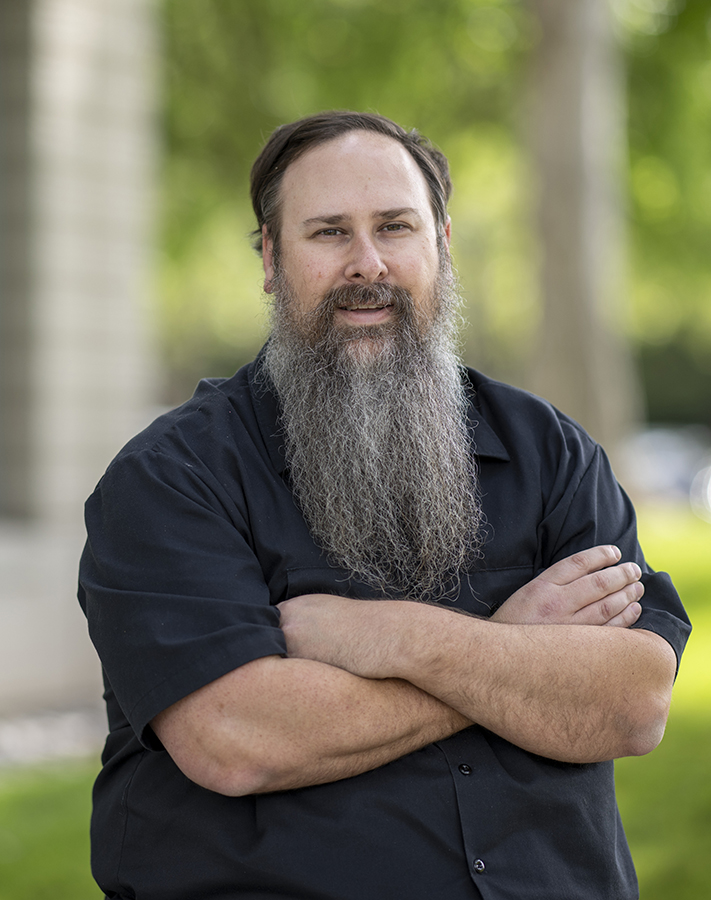
Location: Mountain View, Calif.
Position/Employer: Senior Manager – Oligo and Antibody Content, 10x Genomics
Claim to Fame: Helping cutting-edge technologies make the leap from research to late-stage development.
Proudest moment: Laying the groundwork for brand-new products at Twist Bioscience and reducing costs for customers in the process.
Inspiration: “My time at UW–Madison empowered me to continue to challenge the world around me and not settle for ‘good enough.’ There are always bigger questions to answer and adventures to be had along the way.”
Richard Gantt (PhD ’12) knows the value of patience. He needed more of it than he’d ever imagined while earning his doctorate in pharmaceutical sciences at the University of Wisconsin–Madison School of Pharmacy. It’s also integral to his success in the biotechnology industry, where false starts pave the way to new discoveries.
“At UW–Madison, with Professor Jon Thorson, I worked for nearly four years on a single biochemical reaction before cracking it and opening a floodgate of new research and papers near the end of my graduate career,” he explains. “This instilled in me that really big or difficult scientific breakthroughs take time and that there will be many failures along the way.”
“The goal is to impact discovery and diagnostics by enabling researchers to ask and answer questions that were previously impossible to query.”
—Richard Gantt
Gantt’s combination of patience and tenacity brought him to 10x Genomics, where he’s tasked with building a team to shepherd products from research environments into the real world by turning them into manufacturable processes. Since February, he has led the oligo and antibody team within the company’s New Product Development group, where he helps researchers know what questions to ask in their quest for the next breakthrough.
“The goal is to impact discovery and diagnostics by enabling researchers to ask and answer questions that were previously impossible to query,” Gantt says. “In the process, my team needs to ensure that manufacturing processes are bulletproof, scalable, and customizable.”
Gantt’s work spans numerous teams and product lines, requiring a robust set of leadership, communication, and problem-solving skills. These skills help him interact and coordinate with teams focused on chemistry, tissue preparation, molecular biology, hardware, software, bioinformatics, manufacturing, and more.
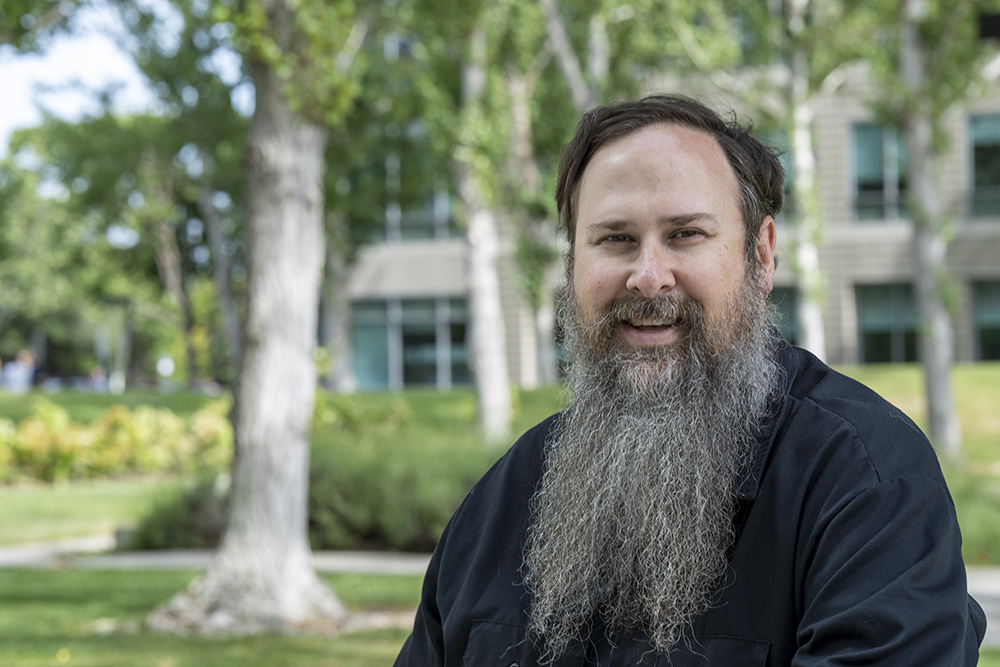
Developing and honing interpersonal skills was an important part of Gantt’s School of Pharmacy experience. Much of this learning took place through relationships that continue to this day.
“At UW–Madison, there were numerous people who had a great deal of patience with me and helped me develop in ways that I only recognized after I graduated,” he explains. “This has made me really passionate about taking the time to train people to the highest level, encourage them to push past what they think they are capable of and check in with them to make sure they are being heard. The quietest among us in the research community are most often the strongest and often communicate in different ways.”
The challenging nature of Gantt’s 10x Genomics role is part of what drew him to the company. Positions at Twist Bioscience and Dupont prepared him for this leap. After earning his PhD, he served as a scientist on one of Dupont’s biochemistry teams, focusing on the engineering and high-throughput screening of industrial enzymes. He then shifted to a molecular biology team, focusing on the infrastructure of high-throughput assembly of DNA libraries for protein engineering.
Gantt joined Twist as a senior scientist in late 2016, working on high-throughput and multiplexed workflows for the assembly of DNA libraries. His role soon evolved, and he began researching and developing a target-enrichment platform from the ground up. In the process, he contributed benchtop protocols, buffer formulations, a novel blocker system that radically improved capture efficiency, and key reagents for next-generation sequence library preparation.
Gantt is especially proud of his work at Twist because he can already see its impact.
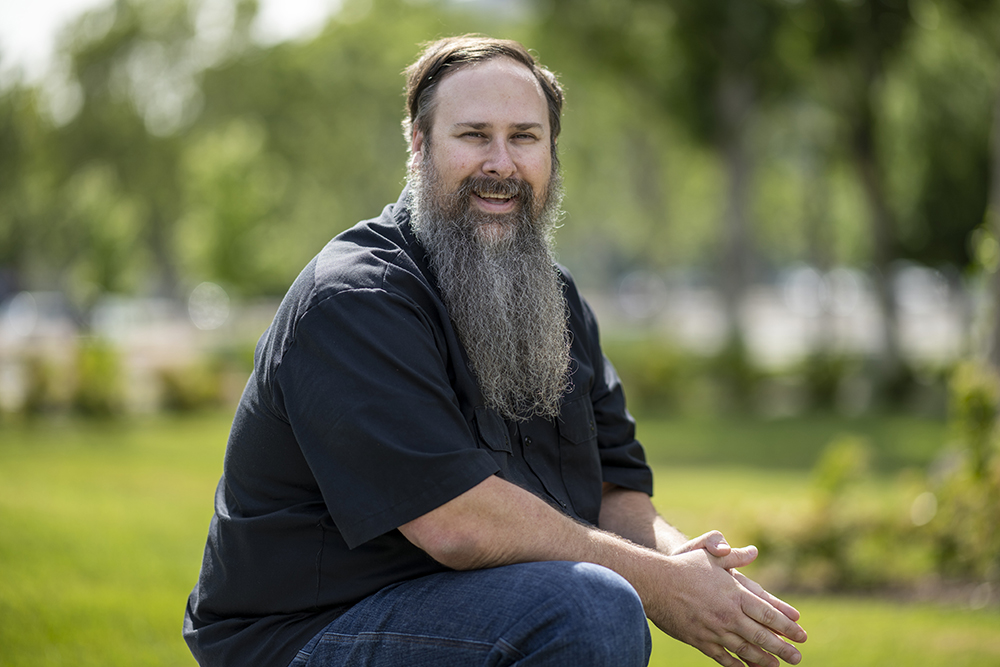
“These contributions not only enabled Twist’s target-enrichment product line but eventually led to a number of brand-new products,” he explains. “Plus, they drastically reduced costs for customers.”
Such efforts also propelled Gantt into a senior staff scientist role that ignited his passion for moving products from research settings to manufacturing environments.
“No matter how interesting or innovative something might be, unless you can actually build that tool and get it into someone else’s hands, that technology is only going to have minimal impact,” he explains.
This tenet drives Gantt’s current work at 10x Genomics, as do the patience and persistence he’s built throughout his career.
“The projects I work on now are infinitely more complex than the single reaction I was working on during graduate school, but the principle of slowly building toward the next breakthrough every day remains the same,” he says.
Back to top
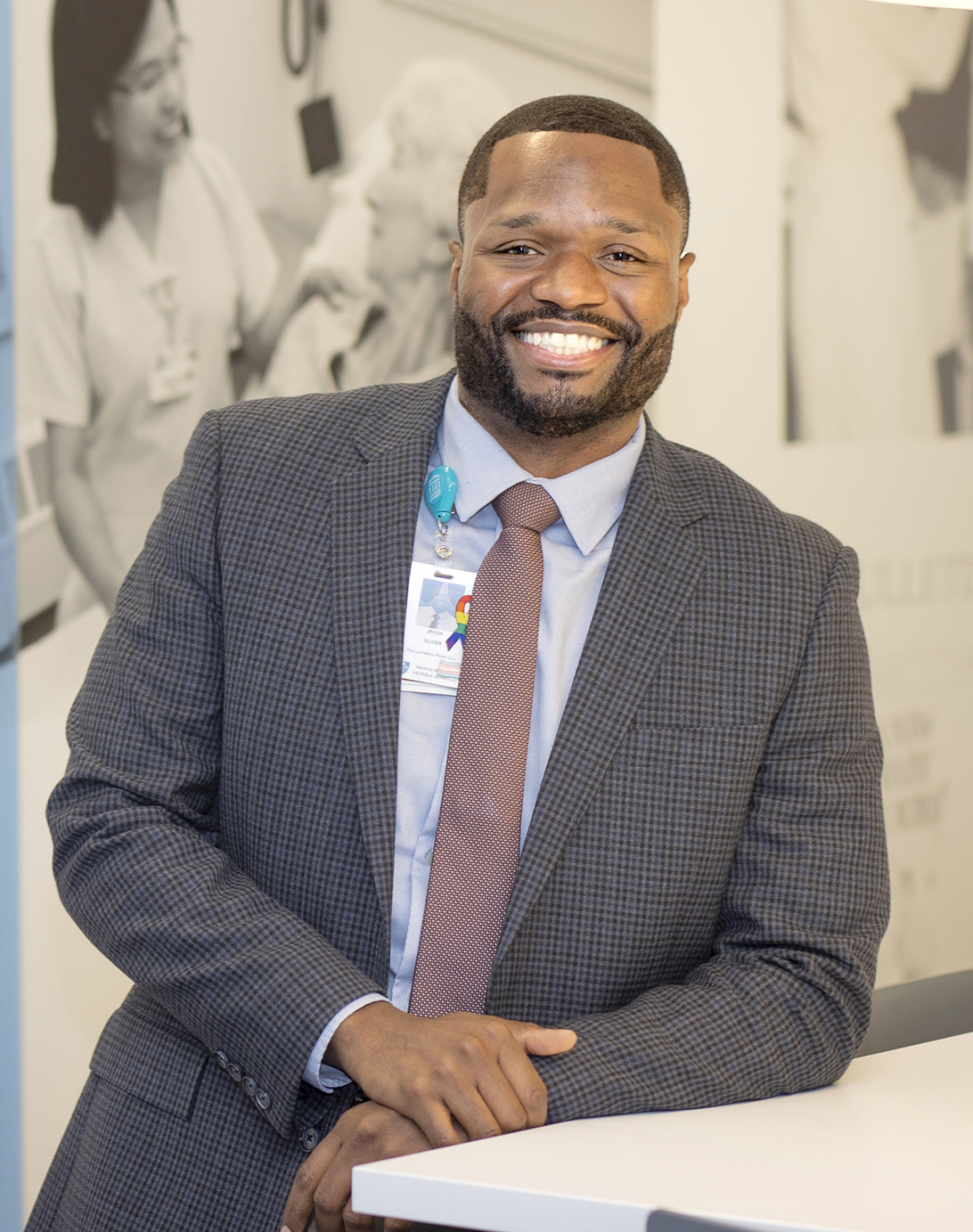
Location: Boston, Mass.
Position/Employer: Director of Ambulatory Pharmacy Services, Mass General Brigham Integrated Care
Claim to Fame: Finding innovative ways for pharmacists to help deliver care in a large health system, while enhancing inclusivity to improve outcomes and well-being for patients and practitioners alike.
Proudest moment: Helping cultivate safety and respect at Mass General through a project that empowers employees to share the pronouns that suit them best.
Inspiration: “I want to make my family, my mentors, and the other people who’ve believed in me proud.”
When Jevon Oliver (MS ’18) took a job at a local CVS Pharmacy in high school, he had no idea how much it would shape his future.
“The pharmacist there was a people’s champion of my neighborhood in Oklahoma City,” Oliver says. “He showed me how pharmacists can make a difference and encouraged me to pursue a career in pharmacy.”
Today, Oliver helps thousands of patients as director of Ambulatory Pharmacy Services for Integrated Care at Mass General Brigham, a nonprofit hospital and physician network in Boston, Mass. Integrated Care works to bring high-quality, low-cost ambulatory care to the community through virtual and in-person primary and specialty care, mental health services, physical therapy, imaging, lab services, and more.
“The pharmacy profession needs the talents and perspectives of people from underrepresented groups, and it’s crucial for those of us from these groups to see ourselves represented.”
—Jevon Oliver
Oliver envisioned a career as a community pharmacist as he worked toward his bachelor’s degree at Oklahoma City University. While earning his PharmD at the University of Oklahoma Health Sciences Center, he learned how pharmacists can help lead entire health systems. This led to a pharmacy administration internship at Baltimore’s Johns Hopkins Bayview Medical Center, where his mentor sang the praises of the UW–Madison School of Pharmacy’s Health System Pharmacy Administration combined master’s degree and residency program, offered in partnership with UW Health. Oliver soon became a Badger.
“I knew UW–Madison’s program was for me when I got to meet some of its leaders at an event,” he says. “They told me about teaching opportunities and graduates practicing in areas I’d only read about in books, like nutrition support pharmacy.”
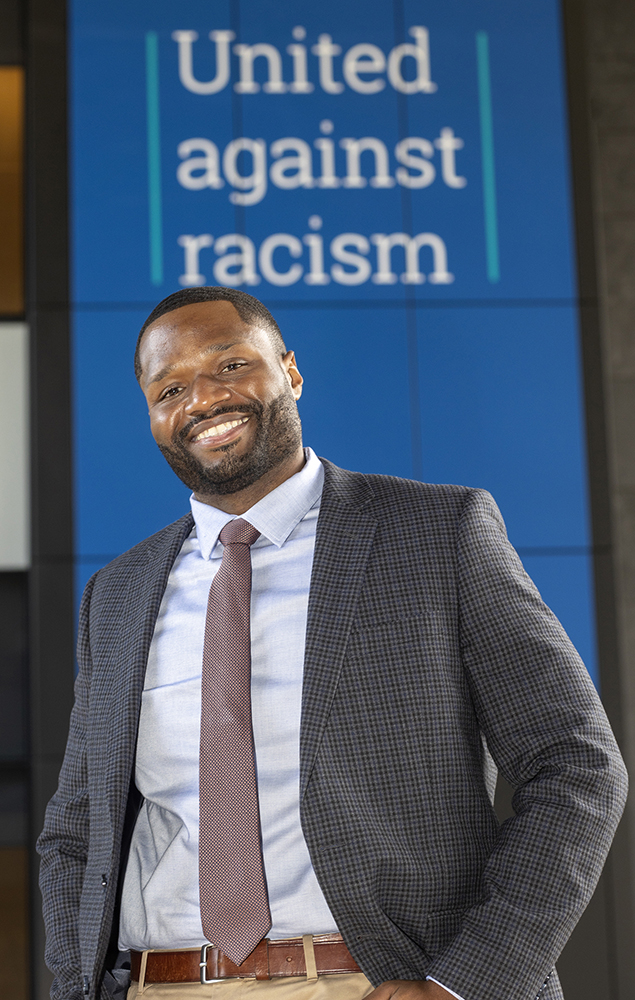
Oliver recalls how Steve Rough (BS ’92, MS ’94), then director of pharmacy at UW Hospital and Clinics and now senior vice president at Visante, was a guiding light from the get-go.
“He’s such a trailblazer. I knew I wanted to learn from him and many other people from the program,” he says.
After completing the program, Oliver was hired as manager of Perioperative Pharmacy Services at Massachusetts General Hospital, a position he held until assuming his current role in fall 2021. He soon became vice chair of the hospital’s LGBTQ Employee Resource Group, which fosters a welcoming environment for lesbian, gay, bisexual, transgender, and queer employees and patients.
“I wasn’t out when I lived in Madison, but that changed after I moved to Boston,” Oliver explains. “Now I identify as a proud, gay, Black male pharmacist, and helping others express the identities that feel true to them is really important to me.”
Oliver has contributed to the group’s volunteer and social activities, including a Pride Month drag show that unites LGBTQ+ employees and allies through humor and hijinks. He has also lent his talents to an initiative that enables employees to share which pronouns suit them best.
“This project is one way of making sure employees can be their true selves at work, which helps them provide exceptional care,” he says.
Oliver’s commitment to diversity, equity and inclusion extends far beyond work. He raises his voice in the Boston Gay Men’s Chorus, which builds community and celebrates differences through music. He’s active in Pharmacy Initiative Leaders (PILs), a nonprofit organization that helps aspiring pharmacists from underrepresented groups connect with mentors who provide professional guidance and networking opportunities. He even leads a discussion group for Badgers from underrepresented groups with fellow School of Pharmacy alumni Melissa Ortega (MS ’12) and Dawn Moore (MS ‘01).

Most of the discussion group’s attendees are first-year residents in the School’s Health System Pharmacy Administration program. After discussing reading material, the group examines real-life challenges such as interview bias and imposter syndrome.
“The pharmacy profession needs the talents and perspectives of people from underrepresented groups, and it’s crucial for those of us from these groups to see ourselves represented,” Oliver says.
He adds that it’s crucial for professionals from marginalized groups to find strategies for managing the unique challenges that come with being a minority.
“If you’re a minority, you know that someone else may base their opinion of your entire racial or ethnic group on you,” he says. “Learning how to let that go and just do the best you can is essential. That’s one thing I help with as a mentor.”